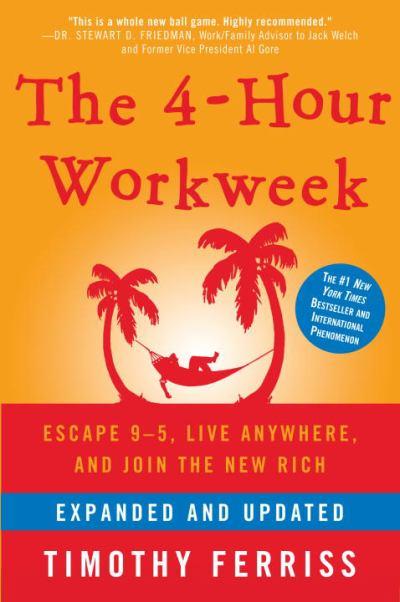
I have mix feelings while reading the book. That’s why I could not finish the first time. Then, I decided to try again for the second time. I agree with many others who left their comments on the Internet that this is a controversial book. Some ideas are like walking on a thin ice called ethics. There are nevertheless some good ideas too. I tried to summarize the book and list down the ideas.
Step I: D is for Definition
This part is about redefining our lives. What do we really want? Spending all our time on work? Absolutely not. So this is what we should do: distribute “mini-retirements” throughout life instead of hoarding the recovery and enjoyment for the fool’s gold of retirement. A luxury lifestyle is a combination of time, income, and mobility. Most people sacrifice time and mobility for better income. However, money alone is not the solution for many things. So, try to get ourselves some time and mobility, even if we have to sacrifice some of our income. As long as our income adds up to the minimum amount necessary to actualize our goals, we are fine. Always remember, being financially rich and having the ability to live like a millionaire are fundamentally two very different things. Do not fear to make such changes.
Step II: E is for Elimination
This part is about earning ourselves more time each day through elimination. That means, be effective, not only efficient. There are two synergistic approaches for increasing productivity that are inversions of each other: 1. Limit tasks to the important to shorten work time (Pareto’s law or 80/20 principle). 2. Shorten work time to limit tasks to the important (Parkinson’s Law). The best solution is to use both together: Identify the few critical tasks that contribute most to income and schedule them with very short and clear deadlines. The end product of the shorter deadline is almost inevitably of equal or higher quality due to greater focus.
Pareto’s Law can be summarized as follows: 80% of the outputs result from 20% of the inputs.
Parkinson’s Law dictates that a task will swell in (perceived) importance and complexity in relation to the time allotted for its completion.
Two poisons to our productivity which we should be aware of: information and interruption. Most information is time-consuming, negative, irrelevant to our goals, and outside of our influence. So we should selectively ignore them. An interruption is anything that prevents the start-to-finish completion of a critical task, and there are three principal offenders: time wasters, time consumers, empowerment failures. Tackle them wisely (see the book for some suggestions).
Step III: A is for Automation
This part is about outsourcing the tasks which could not be eliminated. The first rule is: never automate something that can be eliminated, and never delegate something that can be automated or streamlined. Each delegated task must be both time-consuming and well- defined. On a lighter note, have some fun with it. If we are business owners, task delegation also means creating a process-driven instead of founder-driven business. The architecture has to place us out of the information flow instead of putting us at the top of it. In general, we can try to follow the following flow-chart to make our decisions:
However, delegate task to our virtual assistant does not work all the time. How do we know which virtual assistance service to choose? We don’t. It’s a matter of testing a few assistants to both sharpen our communication skills and determine who is worth hiring and who is worth firing. Also, try to hire a VA firm or VAs with backup teams instead of sole operators.
Step IV: L is for Liberation
This part is about re-gaining our mobility (i.e. working remotely) and embracing the mobility lifestyle (i.e. mini-retirements). Our ultimate target: work wherever and whenever we want, but get our work done. For an employee, the first step is to prove to the employer that productivity increases when working remotely. We can create an opportunity to demonstrate remote work productivity before asking for it as a policy. If our employer rejects the idea no matter how many times we try, just quit. Some jobs are simply beyond repair. It’s impossible to sit in the wrong job for the rest of your life. Being able to quit things that don’t work is integral to being a winner. It’s easier and less painful than you think. There are two types of mistakes: mistakes of ambition and mistakes of sloth. Choose the formal, not the latter.
Example of things that Tim did and I don’t agree
- “In school as in life, having a reputation for being assertive will help you receive preferential treatment without having to beg or fight for it every time.” In university, if Tim did not get a good grade from a teaching assistant, he asked questions until the teaching assistant felt exhausted. In this way, the teaching assistant would hesitate to give him a bad grade again.
- “Expert status can be created in less than four weeks if you understand basic credibility indicators.” Tim suggested some shortcuts to make people feel that you are an expert of a field.
